Chinatown Bakery is part of a new wave of food businesses in London’s Chinese enclave catering to increasingly younger and more multicultural foot traffic.
However, it is one that is starting to stand out through recent retail expansions, manufacturing investments, and significant growth ambitions.
British Baker caught up with Chinatown Bakery co-owner Simon Tang to discover more about the company’s journey, how its product range has evolved, and what lays ahead for the Year of the Dragon and beyond.
Casting off the business
Chinatown Bakery was launched in 2011 by a group of entrepreneurs including Tang who shared a background in running restaurants in the area. A family vibe permeates the business structure and operations.
The main store’s prominent location at Newport Place was previously occupied by a book shop, and a restaurant, which it gradually expanded into. It has since taken over the entire space with a retail shop and on-site bakery on the ground floor and storage on the second floor.
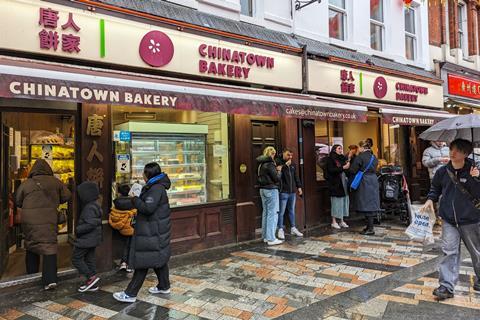
“It’s been an evolution rather than a revolution,” quips Tang, revealing that the inspiration to start the bakery business actually came from witnessing a taiyaki machine in America around 2009. Taiyaki is a fish-shaped waffle originally sold in Japanese as a street food snack, traditionally filled with sweet red bean paste.
“We were thinking ‘what can we do with that?’ and were a little worried that just one machine wasn’t going to do the business,” recalls Tang. “Fortunately, I knew the baker’s wife and asked if her husband would be interested in doing a joint venture for a bakery.
“He’s worked in most of the Chinatown bakeries in London and we thought it’d be a good idea to start up a small bakery,” adds Tang.
Tang notes that their taiyaki are now “synonymous with Chinatown Bakery”, and particularly popular among tourists. There’s a smaller version filled with custard, and two larger offerings filled with either Nutella or red bean.
At peak times, such as during Sunday celebrations of Lunar New Year, a few thousand taiyakis are sold out of the Newport Place store alone.
Tradition and trends
The bakery maintains a core range of traditional Hong Kong-style baked goods aimed at the Chinese diaspora and Asian students missing an authentic taste of home, while also appealing to other nationalities. “Whether it’s the Chinese population, or the English, or the tourists, they really like our products,” comments Tang.
These include the likes of pineapple buns, so called due to their characteristic crunchy topping rather than their flavour – Tang notes Trading Standards pushed for a name change here.
There are also BBQ pork buns, egg tarts, ‘wife cakes’ (flaky pastry filled with winter melon and almond paste) and mooncakes, which are enjoyed during the annual Mid-Autumn Festival between September and October.
The business has also adapted its classic bun recipe to include Westernised toppings such as the Hawaiian bun with Frankfurter sausage, sweetcorn, and mayonnaise.
Meanwhile, a recent trend on social media has seen sponge cakes do “exceedingly well”, accordingly to Tang.
“People take our sponge cakes and they put a video on TikTok. Because they’re so fluffy and light, they press it down and it bounces all the way back up again. People promote it for us – sponge cakes are probably our number one seller now,” he says, admitting they hadn’t previously created content for social posts but were starting to as of this year.
@rochellefeatherstone Pandan EVERY time I go to London 💚 #pandan #pandancake #chinatown #chinatownlondon #londonchinatown #chinatownpandan #chinatownfood #chinatownbakery #pandancakelondon #pandanfood #londonfood ♬ Snooze X We Belong Together - lonely xo
The business is to continue keeping an eye on Asian bakery trends, especially in Hong Kong, which will then be introduced to its customers here in the UK. For example, during the latest Lunar New Year celebrations in February, Chinatown Bakery sold buns inside individual baskets (aka ‘Pig inside of Basket’). This is based on an auspicious gift concept in China said to symbolise the filling of people’s pockets while granting blessings of prosperity throughout the year ahead.
Busiest week
A month of New Year celebrations in the capital culminated on Sunday 11 February with the Chinese New Year Parade, the showcase annual event organised by the London Chinatown Chinese Association. This included a spectacular lion dance on stilts at Trafalgar Square, as well as other traditional Chinese performances with a flying dragon heading the parade across to Chinatown and back. London Mayor Sadiq Khan also gave a welcoming speech to the tens of thousands in attendance, said to be the largest celebration of the festival outside of mainland China.
“The week after the Chinese New Year celebration is normally one of the busiest weeks of the year,” confirms Tang, noting it usually coincides with half term for schools.
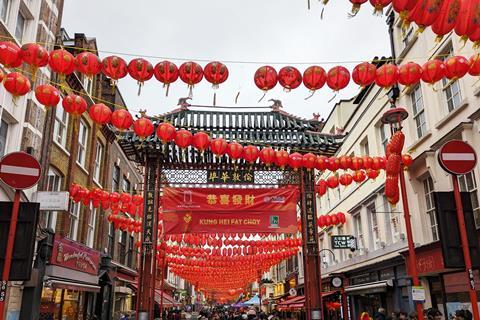
From old to new
Trying to uncover the origins of Chinese bakeries in London proved challenging, but a brand of note was Sun Luen, which ran a café on Little Newport Street that Tang used to visit as a small child. The business also operated a bakery across town on Caledonian Road but was forced to close both enterprises in 2016 after nearly 40 years of trading, according to a Facebook post.
Tang asserts this was due to the aging bakers retiring having been unable to pass down baking skills to the next generation, an issue shared with Western family-run firms too.
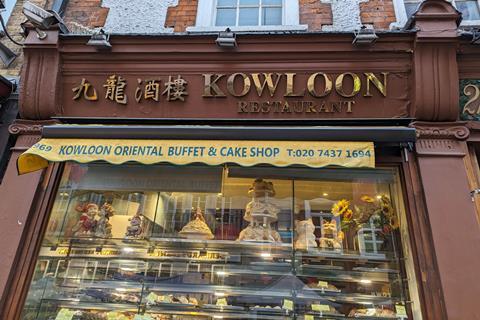
Another bakery with a lengthy history is Kowloon Cake Shop, which remains open to this day sharing an interior space with its popular buffet restaurant on Gerrard Street. Compared to this very traditional business model, Chinatown Bakery is more forward looking with a slightly modern uplift to its premises. It has new competition in area now too, with the likes of Master Bao Pastry opening up in recent months on adjacent Rupert Street and several small Japanese and Korean-style business establishing themselves nearby too.
Whereas Chinatown’s food businesses were initially created to cater to the people coming to England from Hong Kong in the 1960s, trade has been revolutionised over the past 10 or 20 years with an influx of second-generation immigrants and students from mainland China.
“You’ve got social media now,” says Tang. “You can see the variety of different restaurants, different types of food here, and even more people are attracted to Chinatown.”
Growing the brand
Chinatown Bakery is leveraging this upwards trajectory in custom, extending its retail footprint through two smaller shops in nearby Wardour Street. The first was launched in May 2021, while the second was previously trading as ‘Bake’ but underwent rebranding in October last year as ‘Chinatown Bakery presents Tong Tea’. This refurbished outlet features a sleek black interior design and also offers an extensive iced tea menu to accompany the bakery selection.
Supplying the trio of outlets is a 12,000 sq ft bakery site located almost 20 miles away in London Colney, Hertfordshire. Opened in August 2023 and currently running at around 50% capacity, the factory is aimed at scaling up production to support the opening of further new stores and development of new lines for the Chinese bakery wholesale market. Workforce has grown accordingly to surpass 100 full-time employees across all locations.
Tang appears unconcerned about Chinatown competition from the likes of Golden Gate Cake Shop and Wonderful Patisserie. “I think there’s room for everybody to expand. I don’t think there is one brand that is nationalised,” he says.
“We’re just taking it step by step and growing organically”
As such, he reveals his company is looking to expand “a little bit further out into London and maybe beyond as well”, with new shops to be small and have fresh buns supplied daily rather than stocking packaged goods.
Like most bakery businesses, Chinatown has been battling rising energy bills and the impact of inflation on cost of ingredients in recent years. Authentic Asian flour and other specific inclusions require importing from China, Malaysia, and Taiwan, while eggs and meat are sourced in the UK.
“We had a point during Covid where the cost of bringing in a container was five times greater than it normally was, but subsequently the price has come down slightly. We try our best not to raise our prices – a bun starts from £1.90, which I think is very reasonable.”
While wholesale is just a very small part of its business at present, the bakery is looking to initially supply ethnic Chinese supermarkets. The “ultimate aim” is then securing product listings at various UK retailers including the major multiples. “We’re just taking it step by step and growing organically. It’s a scalable business,” comments Tang, adding that all new shops and products would have Chinatown Bakery branding.
With space for growth at its production site and a firm focus on retail expansion, distribution and NPD, Chinatown Bakery seems to be in a strong position to tap into the increasing demand for authentic and innovative Chinese baked goods across the UK.




















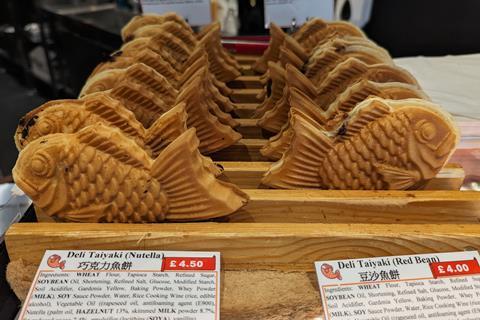
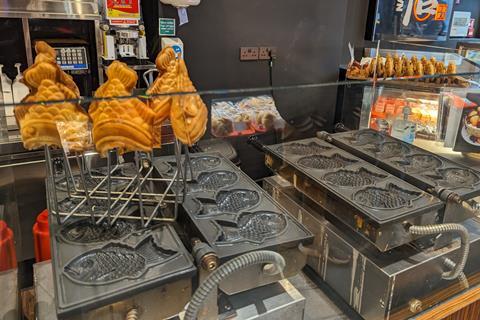
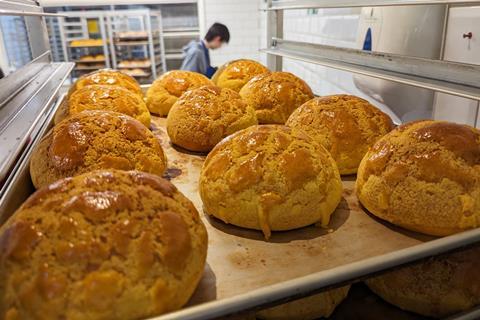
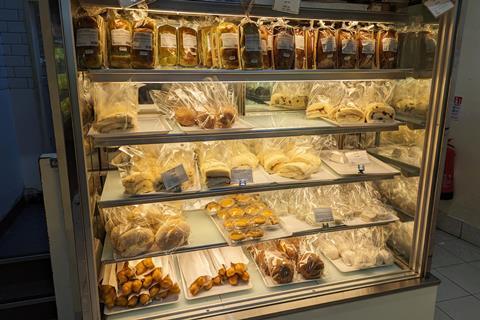
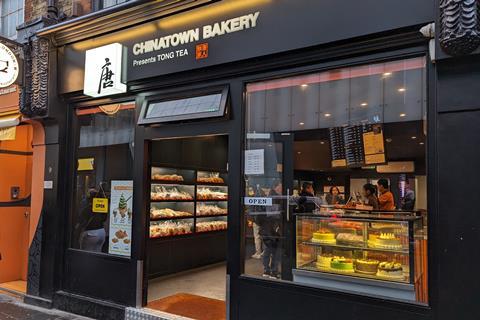
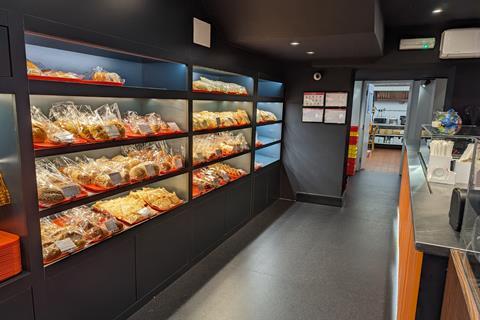

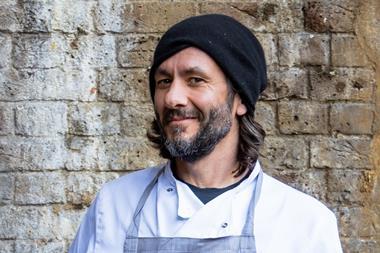
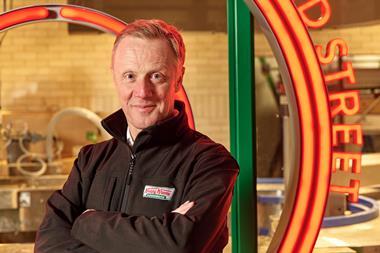
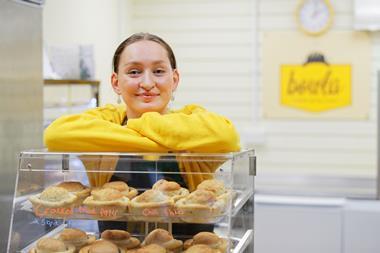
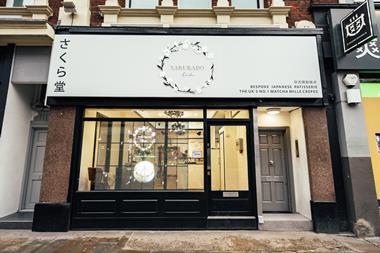
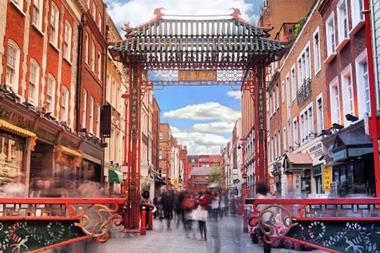
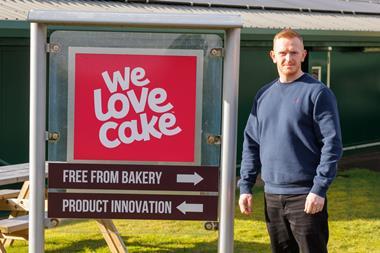


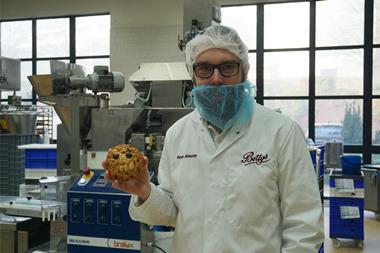

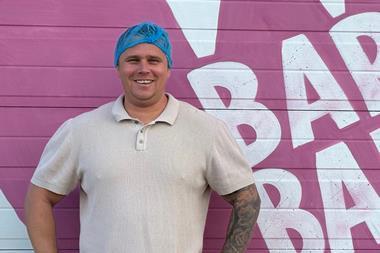

No comments yet